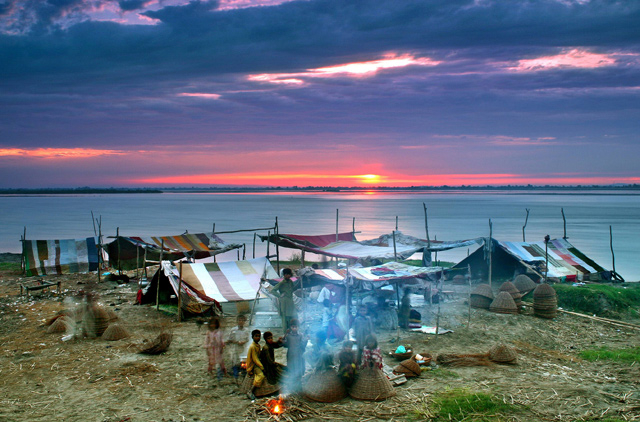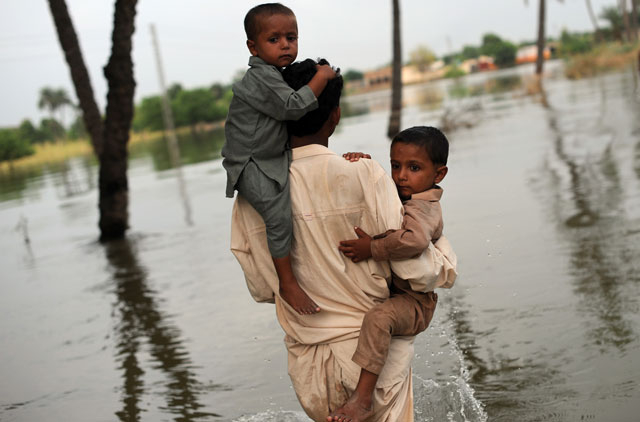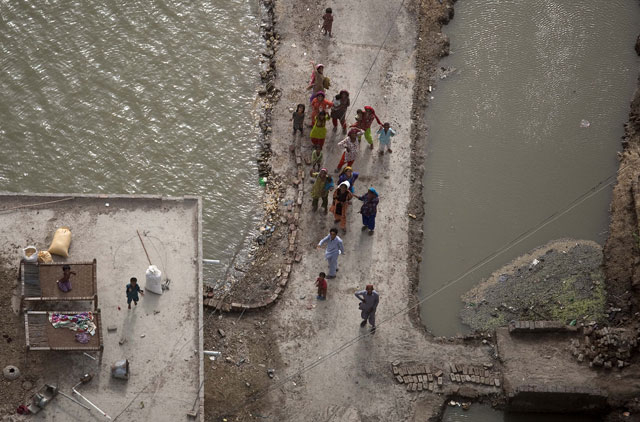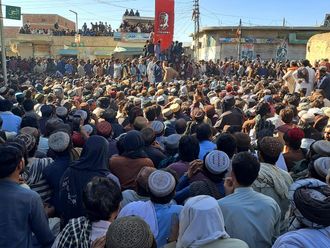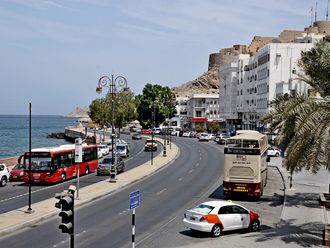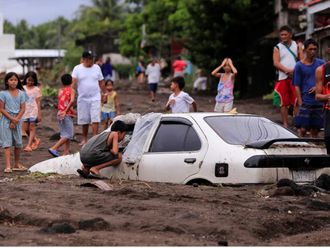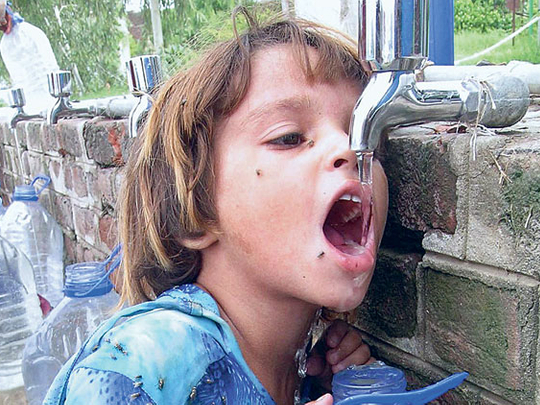
Hyderabad: Pakistan battled on Wednesday to save areas threatened by more devastating flood waters, as the United Nations warned that 800,000 people in desperate need of aid have been cut off by the floods.
The United Nations launched an urgent appeal on Tuesday for more helicopters to deliver aid to those people reachable only by air, after floods triggered by a torrent of monsoon rains washed away bridges and vital access roads.
"As monsoon floods continue to displace millions in southern Pakistan, an estimated 800,000 people in need across the country are only accessible by air," the UN Office for the Coordination of Humanitarian Affairs (OCHA) said.
Pakistan's worst humanitarian catastrophe has affected more than 17 million people, with five million still homeless, according to the UN, while officials warn that millions are at risk from disease and food shortages.
Around 1,500 people have been confirmed dead by Pakistani authorities.
"These unprecedented floods pose unprecedented logistical challenges, and this requires an extraordinary effort by the international community," said John Holmes, UN Under-Secretary-General for Humanitarian Affairs and Emergency Relief Coordinator.
Global relief pledges have topped $700 million (DH2,571 million), but Pakistani and international officials have raised concerns about the slow pace of aid reaching Pakistan and Islamabad has warned that total losses could reach $43 billion.
Pakistani officials have warned that the country's fertile southern plains in the province of Sindh face the risk of more flooding in the next few days as the major Indus river threatens to burst its banks.
"Hyderabad and large surrounding districts are still facing a threat," Sindh province's irrigation minister Jam Saifullah Dharejo said.” We’re working on a war footing. This is an extraordinary flood and we are at war with the extraordinary floods."
Tens of thousands of people have been evacuated from flood-threatened areas close to Hyderabad, a city of 2.5 million people, on the lower reaches of the Indus, where more than 40 nearby villages have been swept away.
The minister said on Tuesday that thousands of irrigation officials had been sent to build up river barriers at high-risk spots near the teeming city, but a full moon this week would increase water flows and the risk of flood.
Barkaat Rizvi, spokesman for the Hyderabad district administration, said the authorities had strengthened embankments between the river and the city's low-lying areas.
But he said residents were still leaving vulnerable areas for safe havens for fear of rising water levels, adding: "Danger is still there."
Over 300 miles (480 kilometres) further north, authorities were also battling to save the city of Shahdadkot from surging water after most of its 100,000 residents had been moved to safety.
Pakistan's Chief Meteorologist Arif Mehmood said on Tuesday that the flood risk remained high in the south, while waters had receded in hard-hit Punjab, Khyber Pakhtunkhwa and Kashmir provinces.
Prime Minister Yousuf Raza Gilani said more than 3.5 million children were at risk from disease, with more than 200 health centres water damaged and a third of a total of 100,000 female health workers displaced from their homes.
"As human misery continues to mount, we are seriously concerned about the spread of epidemic diseases," Gilani told a meeting of health experts.
"There is likelihood of water-borne diseases such as cholera, diarrhoea and dysentery, especially in children, who are already weak and vulnerable."
Millions who saw their homes wiped out in the month since the disaster first struck are surviving on aid handouts and are in desperate need of food, shelter and clean drinking water.
Marcus Prior of the World Food Programme said at least 40 extra heavy-lift helicopters were needed, "to reach the huge numbers of increasingly desperate people with life-saving relief”.
He said the floods had now affected an estimated 17.2 million people, of whom at least eight million are believed to need life-saving humanitarian assistance and over 1.2 million homes have been damaged or destroyed.
Under-fire, President Asif Ali Zardari has warned Pakistan could take years to recover.


